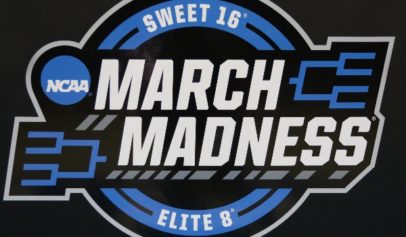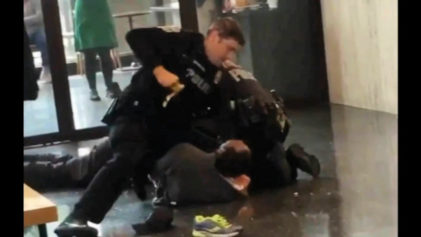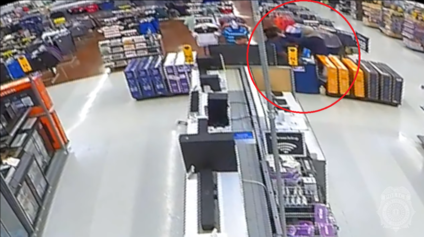Shabazz Napier does not have to worry about going to bed “starving” anymore. The sensational Connecticut point guard, who led the Huskies to the NCAA basketball National Championship Monday night, almost certainly can go to any restaurant in Stoors, Conn., and adoring fans will gladly handle his tab.
The dynamics changed for Napier when he led UConn to a 60-54 victory over Kentucky, outside of Dallas, earning the game’s outstanding player honors in the process. The senior who will be playing in the NBA next season, leaves behind a legacy of success—he now has two NCAA titles, having earned one as a freshman.
But Napier could have an even longer lasting impact on the program as the potential leader of player freedom from the all-encompassing NCAA. When he recently told the media that he at times goes to bed hungry because he cannot afford beyond what’s allowed in his scholarship, it raised concerns of Connecticut lawmakers, who could determine that the school’s athletes could unionize as the private school Northwestern University has.
Napier’s revelation juxtoposed alongside the multimillion dollars UConn receives from the basketball team’s efforts and merchandise sales, shows the gross imbalance of compensation within college basketball.
State Rep. Matthew Lesser and other state lawmakers are considering legislation that would allow athletes at UConn to unionize, Lesser said. Unlike at Northwestern, a private institution governed by the National Labor Relations Board, Connecticut law governs whether employees at a public institution can unionize.
“(Napier) says he’s going to bed hungry at a time when millions of dollars are being made off of him. It’s obscene,” Lesser said. “This isn’t a Connecticut problem. This is an NCAA problem, and I want to make sure we’re putting pressure on them to treat athletes well.”
Napier called the Northwestern union ruling “kind of great” and said his example of needing food is symbolic of the need for players to receive some money beyond their scholarship.
“I don’t feel student-athletes should get hundreds of thousands of dollars, but like I said, there are hungry nights that I go to bed and I’m starving,” he said.
He insisted he is a “student-athlete” when asked if he felt like he was an employee, which was an important distinction cited in the NLRB’s Northwestern ruling.
“I just feel like a student-athlete, and sometimes. . . there (are) hungry nights and I’m not able to eat and I still got to play up to my capabilities.
“When you see your jersey getting sold — it may not have your last name on it — but when you see your jersey getting sold and things like that, you feel like you want something in return.”
Many believe he and other athletes are entitled to at least enough financial resources to prevent them from going to bed hungry.
Not surprisingly, NCAA President Mark Emmert called the idea “grossly inappropriate. It would blow up everything about the collegiate model of athletics,” he said.
That’s the entire point for some. The model needs blowing up. Coaches of major programs make millions in salary and much more in camps, radio/TV shows and endorsements. The players, whose effort and commitment drives the money, get a scholarship. No player ever minimized that, but the lopsided nature of the money distribution is a significant concern.
Depending on your conference, a win in the NCAA Tournament could earn the school $1.2 millions, according to Forbes magazine.
The players at Northwestern, led by former quarterback Kain Colter and Ramogi Huma, founder of National College Players Association and the College Athletes Players Association, say they want better medical coverage, concussion testing, four-year scholarships that cover the entire cost of attendance, and the possibility of being paid.
Northwestern is appealing the ruling to the national NLRB office and maintains that student-athletes are not university employees but “students, first and foremost.”
Huma has said the Northwestern ruling would have national implications, but he would not talk about whether other schools’ teams were planning to hold union votes.
At private schools like Duke and Stanford, the process would be similar to the path taken by Northwestern’s players. There have been indications that officials at those schools are closely monitoring what happens at Northwestern.
Thanks to Napier’s candor—and his play—the attention of this decade-long issue could grow and affect change.


